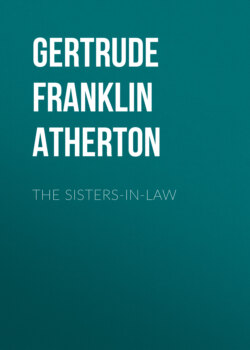Читать книгу The Sisters-In-Law - Gertrude Franklin Horn Atherton - Страница 18
На сайте Литреса книга снята с продажи.
I
ОглавлениеTable of Contents
Gora Dwight with a quick turn of a strong and supple wrist flung a folding chair up through the trap door of the roof. She followed with a pitcher of water, opened the chair, and sat down.
It was the second day of the fire, which was now raging in the valleys north of Market Street and up the hills. It was still some distance from all but the lower end of Van Ness Avenue, the wide street that divides the eastern and western sections of the city, as Market Street divides the northern and southern, and her own home on Geary Street was beyond Franklin and safe for the present. It was expected that the fire would be halted by dynamiting the blocks east of the avenue, but as it had already leapt across not far from Market Street and was running out toward the Mission, Gora pinned her faith in nothing less than a change of wind.
Life has many disparate schools. The one attended by Miss Gora Dwight had taught her to hope for the best, prepare for the worst, and be thankful if she escaped (to use the homely phrase; one rarely found leisure for originality in this particular school) by the skin of her teeth.
Gora fully expected to lose the house she sat on, and had packed what few valuables she possessed in two large bags: the fine underclothes she had made at odd moments, and a handsome set of toilet articles her brother had given her on the Christmas before last. He had had a raise of salary and her experiment with lodgers had proved even more successful than she had dared to hope. On the following Christmas he had given her a large book with a fancy binding (which she had exchanged for something she could read). After satisfying the requirements of a wardrobe suitable for the world of fashion, supplemented by the usual toll of flowers and bon-bons, he had little surplus for domestic presents.
Gora's craving for drama was far deeper and more significant than young Alexina Groome's, and she determined to watch until the last moment the terrific spectacle of the burning city. The wind had carried the smoke upward for a mile or more and pillars of fire supported it at such irregular intervals that it looked like a vast infernal temple in which demons were waging war, and undermining the roof in their senseless fury.
In some places whole blocks of houses were blazing; here and there high buildings burned in solitary grandeur, the flames leaping from every window or boiling from the roof. Sometimes one of these buildings would disappear in a shower of sparks and an awful roar, or a row of humbler houses was lifted bodily from the ground to burst into a thousand particles of flying wood, and disappear.
The heat was overpowering (she bathed her face constantly from the pitcher) and the roar of the flames, the constant explosions of dynamite, the loud vicious crackling of wood, the rending and splitting of masonry, the hoarse impact of walls as they met the earth, was the scene's wild orchestral accompaniment and, despite underlying apprehension and horror, gave Gora one of the few pleasurable sensations of her life.
But she moved her chair after a moment and fixed her gaze, no longer rapt but ironic, on the flaming hillcrests, the long line of California Street, nucleus of the wealth and fashion of San Francisco. The Western Addition was fashionable and growing more so, but it had been too far away for the pioneers of the fifties and sixties, the bonanza kings of the seventies, the railroad magnates of the eighties, and they had built their huge and hideous mansions upon the hill that rose almost perpendicularly above the section where they made and lost their millions. Some wag or toady had named it Nob Hill and the inhabitants had complacently accepted the title, although they refrained from putting it on their cards. And now it was in flames.
